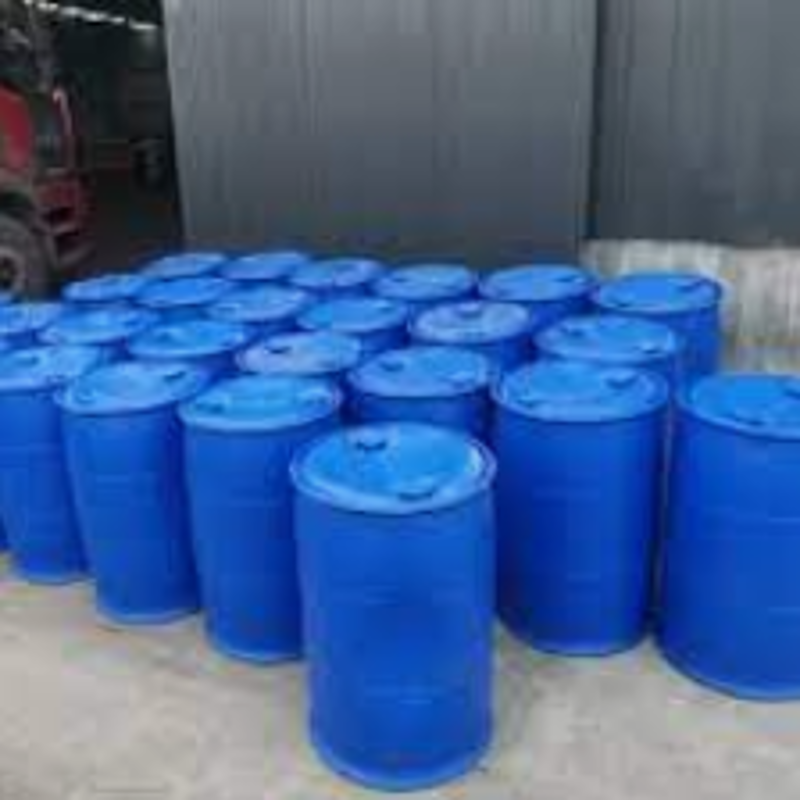-
Categories
-
Pharmaceutical Intermediates
-
Active Pharmaceutical Ingredients
-
Food Additives
- Industrial Coatings
- Agrochemicals
- Dyes and Pigments
- Surfactant
- Flavors and Fragrances
- Chemical Reagents
- Catalyst and Auxiliary
- Natural Products
- Inorganic Chemistry
-
Organic Chemistry
-
Biochemical Engineering
- Analytical Chemistry
-
Cosmetic Ingredient
- Water Treatment Chemical
-
Pharmaceutical Intermediates
Promotion
ECHEMI Mall
Wholesale
Weekly Price
Exhibition
News
-
Trade Service
On July 5, the coronavirus epidemic in Indonesia became more and more serious
.
According to the new crown epidemic data released by the Indonesian National Disaster Relief Agency on the 5th, the country has 29,745 new confirmed cases of new crowns compared with the previous day, and 558 new deaths as of 12:00 on the same day
In terms of vaccination, as of the 5th, a total of 32.
302 million people in Indonesia had received at least one dose of the new crown vaccine, of which 14.
036 million had completed two doses
.
The Indonesian government plans to vaccinate 70% of the country's population, or 181.
Medical infections are also more serious.
Since the outbreak of the epidemic in March 2020, a total of 1031 medical and health personnel have died in Indonesia.
Due to the continuous infection of medical and health personnel, the number of on-duty personnel has been declining
.
Medical oxygen is also in a hurry
.
According to the authorities, this is mainly due to uneven distribution and limited production capacity
Indonesian Health Minister Budi Gunadi said on the 5th that some hospitals on Java Island are short of oxygen reserves, and Indonesia plans to import oxygen to relieve it
.
The Ministry of Health will also cooperate with the Ministry of Industry to temporarily convert 90% of industrial oxygen in Indonesia to medical use.
Due to the overwhelming load of the Indonesian medical system, the occupancy rate of hospital beds in some hospitals in Java has exceeded 90% or even full
.
The government has decided to provide telemedicine services starting today, allowing mildly ill patients to stay at home for recuperation, in order to relieve the pressure of overcrowding in hospitals
Due to the rapid spread of the Delta virus strain that first appeared in India, the number of confirmed cases in Indonesia has risen sharply since mid-May.
Yesterday’s new cases and deaths set a new one-day high, respectively 29,745 and With 558 cases, the cumulative number of cases has now reached 2,13,829 and the cumulative number of deaths has reached 61,140, the most serious in Southeast Asia
.
Indonesian Minister of Health Budi said at a press conference yesterday that from Tuesday, relevant telemedicine companies will provide remote services for patients with mild illnesses, including free consultations and drug delivery, so that hospitals will give priority to treating moderate, severe and severe patients
.
According to data from the Ministry of Health, as of the 2nd of this month, the occupancy rate of hospital beds in the country reached 75%, while the occupancy rate of hospital beds in some densely populated areas of Java, including Jakarta, exceeded 90%, and some hospitals were even full
.
Senior Minister Luhut, who oversees the anti-epidemic work, said that the authorities will increase the oxygen supply in hospitals and import more oxygen
.
He insisted that the surge in cases in Java and Bali "has been brought under control
Under heavy pressure on the medical system, Indonesian Finance Minister Mu Yanni announced yesterday that the government will increase the purchase of anti-epidemic supplies, including vaccines and protective equipment, to IDR 193.
93 trillion (about S$18 billion)
.
She said that if the epidemic eases, the government can begin to relax the epidemic prevention restrictions by August, and it is expected that the Indonesian economy is expected to grow by 4% to 5% in the second half of 2021
.
However, if the number of cases is high and the government must extend the restriction period, Indonesia’s economic growth in the third quarter may slow to 4%
On July 5, the coronavirus epidemic in Indonesia became more and more serious
.
According to the new crown epidemic data released by the Indonesian National Disaster Relief Agency on the 5th, the country has 29,745 new confirmed cases of new crowns compared with the previous day, and 558 new deaths as of 12:00 on the same day
In terms of vaccination, as of the 5th, a total of 32.
302 million people in Indonesia had received at least one dose of the new crown vaccine, of which 14.
036 million had completed two doses
.
The Indonesian government plans to vaccinate 70% of the country's population, or 181.
5 million people, by March next year
.
Medical infections are also more serious.
Since the outbreak of the epidemic in March 2020, a total of 1031 medical and health personnel have died in Indonesia.
Due to the continuous infection of medical and health personnel, the number of on-duty personnel has been declining
.
Medical oxygen is also in a hurry
.
According to the authorities, this is mainly due to uneven distribution and limited production capacity
.
A Java hospital said that last weekend, the hospital's oxygen supply was almost exhausted, resulting in the death of 63 patients
.
However, when the hospital spokesperson was questioned, he could not confirm whether all the deceased were patients with coronary disease
.
Siti, an official with the Ministry of Health, said that the government has asked the industry to increase the production of medical oxygen
.
"We also hope that people will not hoard oxygen
.
" According to the Compass, Khalif, president of the Samado Group, Indonesia's largest oxygen producer, also died of coronary disease last Friday
.
At present, more than 1,000 doctors, nurses and other medical personnel have died from the epidemic, and some have also completed two doses of vaccines
.
Indonesian Medical Association recommended to the government for frontline health care workers vaccinated third doses of the vaccine to enhance the immune force
.
Indonesian Health Minister Budi Gunadi said on the 5th that some hospitals on Java Island are short of oxygen reserves, and Indonesia plans to import oxygen to relieve it
.
The Ministry of Health will also cooperate with the Ministry of Industry to temporarily convert 90% of industrial oxygen in Indonesia to medical use.
It is expected that 575,000 tons of oxygen will be supplied in the next year
.
Due to the overwhelming load of the Indonesian medical system, the occupancy rate of hospital beds in some hospitals in Java has exceeded 90% or even full
.
The government has decided to provide telemedicine services starting today, allowing mildly ill patients to stay at home for recuperation, in order to relieve the pressure of overcrowding in hospitals
.
Due to the rapid spread of the Delta virus strain that first appeared in India, the number of confirmed cases in Indonesia has risen sharply since mid-May.
Yesterday’s new cases and deaths set a new one-day high, respectively 29,745 and With 558 cases, the cumulative number of cases has now reached 2,13,829 and the cumulative number of deaths has reached 61,140, the most serious in Southeast Asia
.
Indonesian Minister of Health Budi said at a press conference yesterday that from Tuesday, relevant telemedicine companies will provide remote services for patients with mild illnesses, including free consultations and drug delivery, so that hospitals will give priority to treating moderate, severe and severe patients
.
.
Relevant telemedicine companies will provide remote services for mild patients, including free consultation and drug delivery, so that hospitals will give priority to treating moderate, severe and severe patients
.
According to data from the Ministry of Health, as of the 2nd of this month, the occupancy rate of hospital beds in the country reached 75%, while the occupancy rate of hospital beds in some densely populated areas of Java, including Jakarta, exceeded 90%, and some hospitals were even full
.
.
The occupancy rate of hospital beds across the country is up to 75%, while some areas on the densely populated island of Java, including Jakarta hospitals, have a occupancy rate of more than 90%, and some hospitals are even full
.
Senior Minister Luhut, who oversees the anti-epidemic work, said that the authorities will increase the oxygen supply in hospitals and import more oxygen
.
He insisted that the surge in cases in Java and Bali "has been brought under control
.
"
Under heavy pressure on the medical system, Indonesian Finance Minister Mu Yanni announced yesterday that the government will increase the purchase of anti-epidemic supplies, including vaccines and protective equipment, to IDR 193.
93 trillion (about S$18 billion)
.
She said that if the epidemic eases, the government can begin to relax the epidemic prevention restrictions by August, and it is expected that the Indonesian economy is expected to grow by 4% to 5% in the second half of 2021
.
However, if the number of cases is high and the government must extend the restriction period, Indonesia’s economic growth in the third quarter may slow to 4%
.







